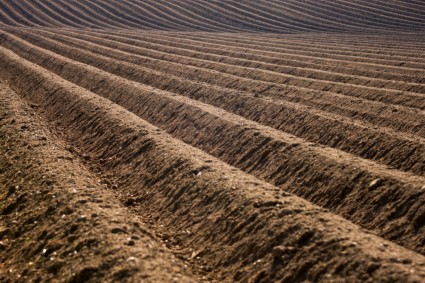Monday, February 1, 2016 - According to new research by the University of Sheffield’s Grantham Centre for Sustainable Futures, the world has lost a third of its arable land due to erosion or pollution in the past 40 years. High-quality food-producing land has been lost at a rate that far outstrips the pace of natural  processes to replace diminished soil and the trend appears close to being irreversible without major changes to agricultural practices.
processes to replace diminished soil and the trend appears close to being irreversible without major changes to agricultural practices.
The continual plowing of fields, combined with heavy use of fertilizers, has degraded soils across the world, the research found, with erosion occurring at a pace of up to 100 times greater than the rate of soil formation. It takes around 500 years for just 1 inch of topsoil to be created amid unimpeded ecological changes. This loss of integrity impacts soil’s ability to store water, which neutralizes its role as a buffer to floods and a fruitful base for plants.
Duncan Cameron, professor of plant and soil biology at the University of Sheffield said, “We are increasing the rate of loss and we are reducing soils to their bare mineral components. We are creating soils that aren’t fit for anything except for holding a plant up.
The steep decline in soil has occurred at a time when the world’s demand for food is rapidly increasing. It’s estimated the world will need to grow 50% more food by 2050 to feed an anticipated population of 9 billion people.
The academics behind the University of Sheffield study propose a number of remedies to soil loss, including recycling nutrients from sewerage, using biotechnology to wean plants off their dependence upon fertilizers, and rotating crops with livestock areas to relieve pressure on arable land.
Read More Here and Here